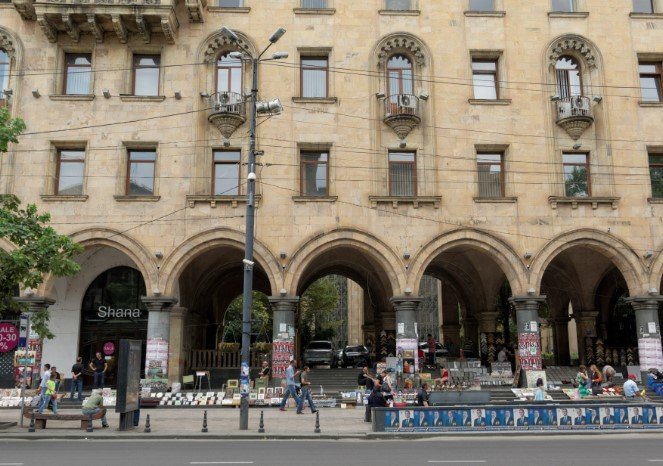Mass protests continue to grip Tbilisi, Georgia’s capital, with over 400 individuals detained since the demonstrations began on November 28. Protesters are rallying against the government’s decision to delay EU membership negotiations, escalating tensions across the nation.
Mass Detentions and Rising Tensions
Deputy Interior Minister Alexander Darakhvelidze confirmed during a briefing that 400 individuals have been detained over the course of the protests.
- Criminal charges: 30 people face criminal responsibility.
- Administrative cases: 372 have been subject to administrative proceedings, with 62 detained and more than 100 fined.
- Court cases for others are ongoing, highlighting the prolonged nature of the unrest.
Compounding the turmoil, reports indicate approximately 60 cases of theft in Tbilisi’s city center since the protests began. Critics argue that this surge in petty crime reflects the broader destabilization of public order.

December 8: Explosions and Peaceful Conclusions
On December 8, opposition demonstrators gathered near Georgia’s parliament building on Rustaveli Avenue. Protesters used pyrotechnics, resulting in over 10 explosions in the area, though there were no reported injuries. Notably, police were absent from the demonstration site, according to Rustavi2.
The rally ended without major incident around 2:00 a.m., as protesters vacated the avenue and traffic resumed. However, the use of pyrotechnics reflects an increasing willingness by demonstrators to adopt more dramatic tactics to make their voices heard.
EU Membership Delay Fuels Unrest
The protests were sparked by Prime Minister Irakli Kobakhidze’s announcement that negotiations on Georgia’s EU accession would be delayed until at least 2028. This decision was the breaking point for many opposition groups already frustrated with October’s parliamentary election results, which they claim were marred by fraud.
Georgia’s President Salome Zurabishvili has openly sided with the protesters, labeling the current parliament “illegitimate.” This rare instance of presidential alignment with public dissent has added legitimacy to the opposition’s demands.
Public Reaction and Political Implications
The ongoing unrest signals deeper dissatisfaction with Georgia’s governance and its perceived drift away from European integration. The following trends are emerging:
- International attention: As Georgia delays its EU membership aspirations, the nation risks alienating its allies in Europe and the United States.
- Polarization: The protests have further entrenched divisions between government loyalists and opposition supporters.
- Economic concerns: Prolonged protests and instability could deter investment and tourism, critical components of Georgia’s economy.
The protests have entered their third week, and the government faces mounting pressure to address both domestic grievances and international concerns.
